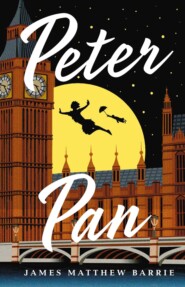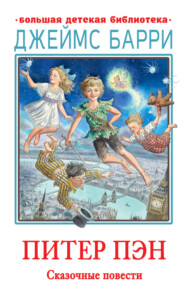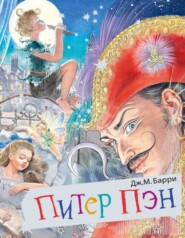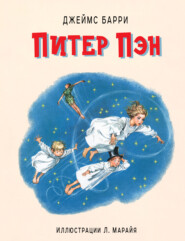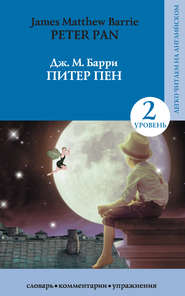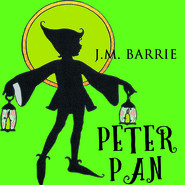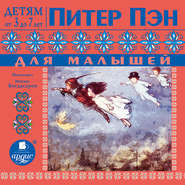По всем вопросам обращайтесь на: info@litportal.ru
(©) 2003-2024.
✖
When a Man's Single: A Tale of Literary Life
Автор
Год написания книги
2017
Настройки чтения
Размер шрифта
Высота строк
Поля
'Mr. Greybrooke,' she said, speaking rapidly in a voice so low that it was a compliment to him in itself, 'there is something I should like you to do for me.'
The captain flushed with pleasure.
'There is nothing I wouldn't do for you,' he stammered.
'I want you,' continued Miss Meredith, with a most vindictive look on her face, 'to find out for me who wrote a book review in to-day's Mirror, and to – to – oh, to thrash him.'
'All right,' said the captain, rising and looking for his hat.
'Wait a minute,' said Nell, glancing at him admiringly. 'The book is called The Scorn of Scorns, and it is written by – by a friend of mine. In to-day's Mirror it is called the most horrid names, sickly sentimental, not even grammatical, and all that.'
'The cads!' cried Greybrooke.
'But the horribly mean, wicked thing about it,' continued Nell, becoming more and more indignant as she told her story, 'is that not two months ago there was a review of the book in the same paper, which said it was the most pathetic and thoughtful and clever tale that had ever been published by an anonymous author!'
'It's the lowest thing I ever heard of,' said Greybrooke, 'but these newspaper men are all the same.'
'No, they're not,' said Nell sharply (Richard Abinger, Esq.'s, only visible means of sustenance was the press), 'but they are dreadfully mean, contemptible creatures on the Mirror– just reporters, you know.'
Greybrooke nodded, though he knew nothing about it.
'The first review,' Nell continued, 'appeared on the 3rd of October, and I want you to show them both to the editor, and insist upon knowing the name of the writer. After that find the wretch out, and – '
'And lick him,' said the captain.
His face frightened Nell.
'You won't hit him very hard?' she asked apprehensively, adding as an afterthought, 'perhaps he is stronger than you.'
Greybrooke felt himself in an unfortunate position. He could not boast before Nell, but he wished very keenly that Will was there to boast for him. Most of us have experienced the sensation.
Nell having undertaken to keep Will employed until the captain's return, Greybrooke set off for the Mirror office with a look of determination on his face. He went into two shops, the one a news-shop, where he bought a copy of the paper. In the other he asked for a thick stick, having remembered that the elegant cane he carried was better fitted for swinging in the air than for breaking a newspaper man's head. He tried the stick on a paling. Greybrooke felt certain that Miss Meredith was the novelist. That was why he selected so thick a weapon.
He marched into the advertising office, and demanded to see the editor of the Mirror.
''Stairs,' said a clerk, with his head in a ledger. He meant upstairs, and the squire of dames took his advice. After wandering for some time in a labyrinth of dark passages, he opened the door of the day composing-room, in which half a dozen silent figures were bending over their cases.
'I want the editor,' said Greybrooke, somewhat startled by the sound his voice made in the great room.
''Stairs,' said one of the figures, meaning downstairs.
Greybrooke, remembering who had sent him here, did not lose heart. He knocked at several doors, and then pushed them open. All the rooms were empty. Then he heard a voice saying —
'Who are you? What do you want?'
Mr. Licquorish was the speaker, and he had been peering at the intruder for some time through a grating in his door. He would not have spoken at all, but he wanted to go into the composing-room, and Greybrooke was in the passage that led to it.
'I don't see you,' said the captain; 'I want the editor.'
'I am the editor,' said the voice, 'but I can see no one at present except on business.'
'I am here on business,' said Greybrooke. 'I want to thrash one of your staff.'
'All the members of my literary staff are engaged at present,' said Mr. Licquorish, in a pleasant voice; 'which one do you want?'
'I want the low cad who wrote a review of a book called The Scorn of Scorns, in to-day's paper.'
'Oh!' said Mr. Licquorish.
'I demand his name,' cried Greybrooke.
The editor made no answer. He had other things to do than to quarrel with schoolboys. As he could not get out he began a leaderette. The visitor, however, had discovered the editorial door now, and was shaking it violently.
'Why don't you answer me?' he cried.
Mr. Licquorish thought for a moment of calling down the speaking-tube which communicated with the advertisement office for a clerk to come and take this youth away, but after all he was good-natured. He finished a sentence, and then opened the door. The captain strode in, but refused a chair.
'Are you the author of the book?' the editor asked.
'No,' said Greybrooke, 'but I am her friend, and I am here to thrash – '
Mr. Licquorish held up his hand to stop the flow of the captain's indignation. He could never understand why the public got so excited over these little matters.
'She is a Silchester lady?' he asked.
Greybrooke did not know how to reply to this. He was not sure whether Nell wanted the authorship revealed.
'That has nothing to do with the matter,' he said. 'I want the name of the writer who has libelled her.'
'On the press,' said Mr. Licquorish, repeating some phrases which he kept for such an occasion as the present, 'we have a duty to the public to perform. When books are sent us for review we never allow prejudice or private considerations to warp our judgment. The Mirror has in consequence a reputation for honesty that some papers do not possess. Now I distinctly remember that this book, The Vale of Tears– '
'The Scorn of Scorns.'
'I mean The Scorn of Scorns, was carefully considered by the expert to whom it was given for review. Being honestly of opinion that the treatise – '
'It is a novel.'
'That the novel is worthless, we had to say so. Had it been clever, we should – '
Mr. Licquorish paused, reading in the other's face that there was something wrong. Greybrooke had concluded that the editor had forgotten about the first review.
'Can you show me a copy of the Mirror,' the captain asked, 'for October 3rd?'
Mr. Licquorish turned to the file, and Greybrooke looked over his shoulder.
'There it is!' cried the captain indignantly.
They read the original notice together. It said that, if The Scorn of Scorns was written by a new writer, his next story would be looked for with great interest. It 'could not refrain from quoting the following exquisitely tender passage.' It found the earlier pages 'as refreshing as a spring morning,' and the closing chapters were a triumph of 'the art that conceals art.'






